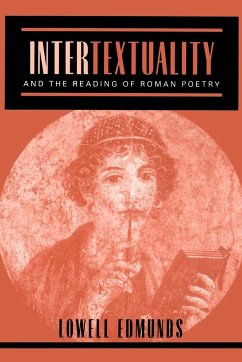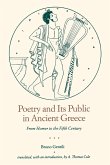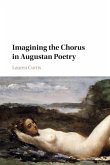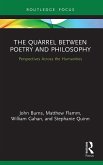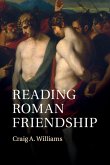How can we explain the process by which a literary text refers to another text? For the past decade and a half, intertextuality has been a central concern of scholars and readers of Roman poetry. In "Intertextuality and the Reading of Roman Poetry, " Lowell Edmunds proceeds from such fundamental concepts as "author," "text," and "reader," which he then applies to passages from Vergil, Horace, Ovid, and Catullus. Edmunds combines close readings of poems with analysis of recent theoretical models to argue that allusion has no linguistic or semiotic basis: there is nothing "in addition to" the alluding words that causes the allusion or the reference to be made. Intertextuality is a matter of reading.
Bitte wählen Sie Ihr Anliegen aus.
Rechnungen
Retourenschein anfordern
Bestellstatus
Storno

